Home
Background and Rationale
Healthcare is the backbone of every nation. Government everywhere have taken the health sector as a priority sector. In 2003, the Government of Ghana decided to improve upon health coverage and access and introduced a social intervention known as the National Health Insurance Scheme (NHIS).
One of the primary goals of Ghana’s NHIS was to increase affordability and utilisation of drugs and health services in general, and among the poor and most vulnerable populations, in particular. Ghana’s NHIS was created by the National Health Insurance Act of August 2003 and became one of very few attempts by a sub-Saharan African country to implement a national-level, universal health insurance program.
The NHIS is financed from four main sources: a value-added tax on goods and services, and an earmarked portion of social security taxes from formal sector workers, individual premiums, and miscellaneous other funds from investment returns, donors funding. The 2.5 percent tax on goods and services, called the National Health Insurance Levy (NHIL), is by far the largest source, comprising about 70 percent of revenues. Social security taxes account for an additional 23 percent, premiums for about 5 percent, and other funds for the remaining 2 percent.
A recent survey indicated that about 50 percent of Ghanaians are registered on the scheme1. The majority of whom are the working class, poor and vulnerable in the under-served rural communities who cannot afford the private mutual health insurance scheme. The NHIS has been characterised by some challenges during implementation. These include delays in transfer by the government and the NHIS to service providers, charging of illegal fees, and abuse of clients by some health workers.
The aforementioned challenges persist even though the Government of Ghana continues to pump huge resources into the scheme, while subscribers in the formal sector whose 2.5 percent of their salaries are deducted are also contributing. The recalibration of the 2.5 percent of the Value Added Tax (VAT) has also increased the taxable revenue meant for the scheme.
Because of these challenges, many companies have had to sign their workforce on a private mutual insurance scheme. Albeit more efficient and provides a wider drug list, the private mutual scheme is very expensive, making it impossible for the poor and vulnerable to afford.
It is in this context, CUTS Accra with support from Open Society Initiatives for West Africa (OSIWA) is implementing a 12-month project entitled ‘Making the National Health Insurance Scheme Work for the People’ to advocate for reforms that are aimed at addressing the challenges limiting the effectiveness of the NHIS in Ghana.
Project Goal
The goal of the project is to advocate and influence policymakers and other relevant stakeholders to strengthen health outcomes and welfare of subscribers by ensuring that the NHIS and its accredited healthcare providers provide maximum care to insurance subscribers whilst at the same time reducing out-of-pocket expenses in using the scheme.
Project Objectives
The Project seeks to:
- explore the challenges that are preventing the NHIS to deliver on its mandate to subscribers;
- facilitate debate and discussions on the challenges preventing the NHIS to effectively discharge its mandate and how these can be addressed;
- advocate for the government as well as all government institutions and departments to make the necessary reforms, including policy and practices, to ensure that the NHIS is adequately equipped to perform its mandate; and
- increase the level of awareness of subscribers to know their rights and entitlement under the scheme.
Project Activities
The proposed activities can be split into four. Namely; Research, Dissemination Workshop, Advocacy, and Media Outreach.
Research
Field research to explore and understand the challenges confronting the NHIS would be conducted. The study would be based on both primary and secondary evidence, with input from all stakeholders, including; subscribers, health providers, government, and the National Health Insurance Authority (NHIA). Both quantitative and qualitative methods would be employed which would be triangulated with a review of existing literature, government policies and statutory instruments governing the NHIS. The study will also use the mystery shopping research technique to explore patients’ experience of the scheme.
Dissemination Workshop
The findings of the research would be disseminated among the relevant stakeholders through a dissemination workshop. The preliminary findings of the workshop would enable stakeholders, drawn from the private sector, government, and the civil society an opportunity to react and provide further inputs to dissect the challenges and possible solutions. The inputs would be used to produce a comprehensive report outlining the challenges, causes, and a roadmap towards addressing those challenges, with clear roles and responsibilities. The media will be invited to provide coverage during the workshop.
Advocacy
Having generated evidence-based findings from the research, CUTS and its partners (which includes Ghana Health Coalition and other organisations) would engage with duty bearers such as Ministry of Health, NHIA, NHIS, and Ghana Health Service (GHS) and other relevant stakeholder institutions to address why scheme subscribers are overly exposed to out-of-pocket expenses whenever they visit health facilities. CUTS and its partners will develop an advocacy and education campaign that will seek to educate NHIS subscribers concerning their rights and entitlement under the scheme.
Media Outreach
The media shall be used as a tool to disseminate messages as well as inform and educate the public about their rights and entitlement under the scheme. Feature articles, press releases, TV and radio appearances, and documentaries shall be employed to stimulate discussions and debates towards reforms that are aimed at addressing the challenges currently limiting the effectiveness of the National Health Insurance. CUTS social media handles, such as Facebook, Twitter, Instagram, and YouTube shall also be used to reach a wider audience with highlights of research findings.
Project Outputs
- Policy Briefs and Briefing Papers containing easy-to-digest evidence of concerns emanating from lack of an effective NHIS and providing pragmatic solutions to the same shall be developed.
- CUTS would partner the Ghana Health Service and NHIA to develop an NHIS Subscribers Charter that would be displayed at all health facilities providing the services and entitlement of subscribers to the scheme.
Project Outcomes
- Improved access to health facilities by NHIS subscribers leading to improved health outcomes
- Improved subscribers’ awareness about their rights and entitlement under the scheme
- Reduced out-of-pocket expenses by insurance subscribers
- Improved engagement between subscribers and the NHIA and its accredited healthcare providers
What’s New
Project Brief
About the Project
Policy Briefs
Articles
- Is The National Health Insurance Scheme (NHIS) Working For The People?
Graphic, November 04, 2021
Media
- CUTS, OSIWA Launches Research Report On NHIS In Accra
Norvan Reports, November 04, 2021 - Intensify Public Education On Service Packages Under NHIS- Research Report
Norvan Reports, November 04, 2021 - Expand NHIS Coverage To Cover Cancers Diseases- Ghanaians Urges NHIA
Norvan Reports, November 04, 2021 - CUTS Int’l Launches 2020 Diagnostic Research Report; Recommends Increased NHIS Funding
Citi News Room, October 27, 2021
Press Releases
Study Partners
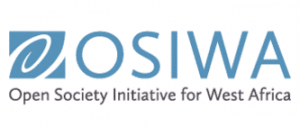
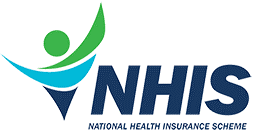

Glimpses
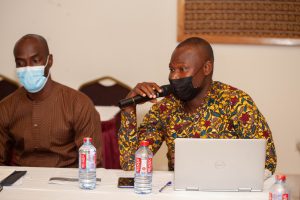
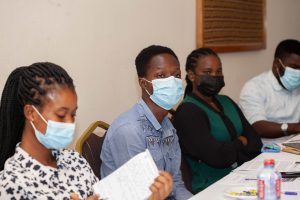
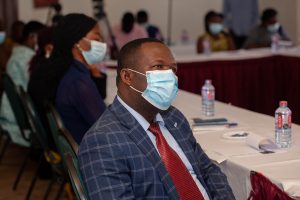
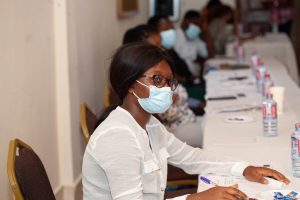
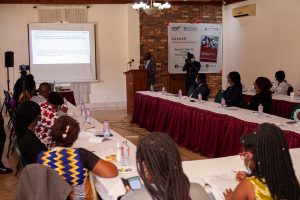
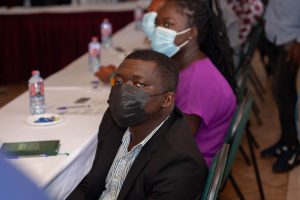
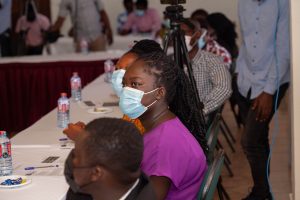
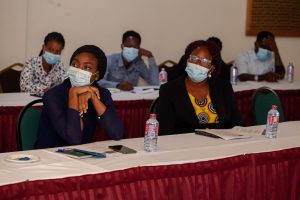


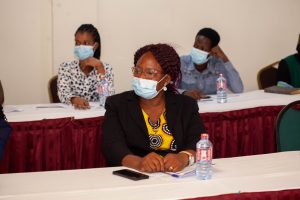
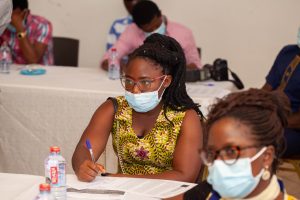
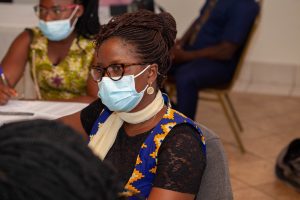


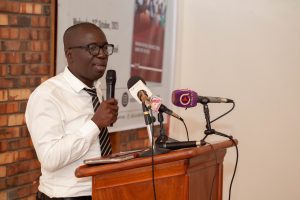
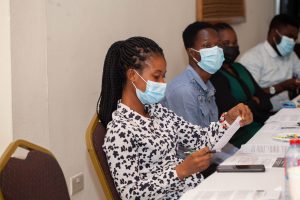



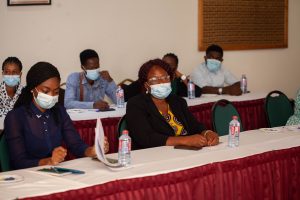
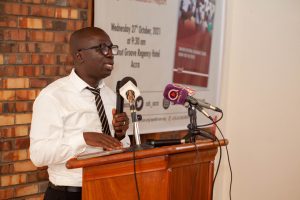

Events
- Making National Health Insurance Scheme : Work for the People
October 27, 2021, Accra, Ghana
Contact Us
CUTS Africa Resource Centre, ACCRA
P. O Box AN 6156
30 Asafoatse Oman Street
Kokomlemle-Accra-Ghana
Email: accra@cuts.org | Website: https://cuts-accra.org/
